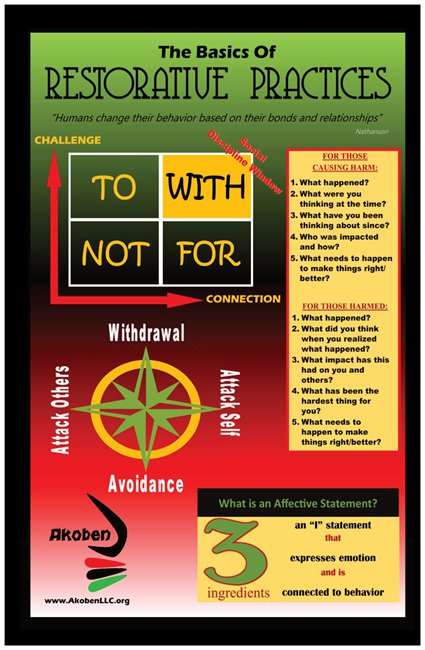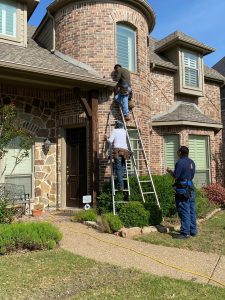Creating a positive and productive learning environment requires more than traditional disciplinary approaches. Modern educators face complex challenges that demand innovative solutions rooted in understanding, relationship-building, and cultural responsiveness. Effective classroom management strategies focus on creating inclusive spaces where students feel valued, heard, and empowered to learn. These approaches move beyond punitive measures to address the root causes of behavioral challenges while fostering community and accountability. By implementing restorative practices, trauma-informed care, and culturally relevant methods, educators can transform their classrooms into thriving communities where every student has the opportunity to succeed academically and personally.
Building Restorative Communities in Educational Settings
The foundation of successful classroom management strategies lies in creating environments where relationships matter more than rules. Classroom management strategies that incorporate restorative practices emphasize doing things with students rather than to them or for them. This fundamental shift recognizes that human beings are naturally more cooperative, productive, and likely to make positive changes when they feel included in decision-making processes. Restorative approaches help educators build stronger connections with students by prioritizing dialogue over punishment and understanding over exclusion. When conflicts arise, these strategies provide frameworks for addressing harm, repairing relationships, and preventing future issues through community-based solutions that hold everyone accountable.
Implementing these practices requires dedication and expert guidance from professionals who understand the complexities of modern educational environments. Dr Malik Muhammad has pioneered approaches that combine restorative practices with cultural relevancy and trauma-informed care to create lasting change in schools and organizations. His work demonstrates that effective classroom management is not about control but about empowerment and connection. Through his leadership, countless educators have learned to facilitate meaningful conversations, create circles of support, and develop systems that address behavioral challenges at their source. This transformative approach recognizes that students come to school carrying various experiences, and effective management requires understanding these contexts while maintaining high expectations for growth and accountability.
Professional development and ongoing support are essential for sustaining these changes in educational settings. Akoben.org provides comprehensive training, consulting, and coaching services designed to help schools implement restorative practices effectively and sustainably. Their approach recognizes that transformation requires more than one-time workshops; it demands continuous learning, reflection, and community building. Schools partnering with experienced consultants gain access to proven frameworks, practical tools, and ongoing support that helps educators navigate challenges and celebrate successes. This investment in professional growth creates ripple effects throughout school communities, improving not only classroom management but overall school culture, climate, and student outcomes across all areas of academic and social development.
Addressing Trauma and Building Culturally Responsive Practices
Understanding the intersection of trauma, culture, and behavior is crucial for effective classroom management in today’s diverse educational landscape. Iman Shabazz brings expertise in helping educators recognize how students’ experiences shape their behavior and learning capacity. Trauma-informed approaches acknowledge that many behavioral challenges stem from underlying emotional wounds, stress responses, or unmet needs rather than defiance or disrespect. When educators understand these dynamics, they can respond with compassion while maintaining boundaries and expectations. This balanced approach creates safety for students while teaching them healthy ways to process emotions, resolve conflicts, and build resilience. Cultural responsiveness ensures that management strategies honor students’ identities, backgrounds, and experiences rather than imposing one-size-fits-all solutions that may alienate or marginalize certain groups.
Recognizing and addressing shame is particularly important in creating equitable classroom environments where all students can thrive. The compass of shame provides a framework for understanding how shame manifests in educational settings and impacts both students and educators. Shame can drive behaviors that appear as withdrawal, aggression, avoidance, or attention-seeking, yet these responses often mask deeper feelings of inadequacy or unworthiness. When educators understand these patterns, they can respond in ways that reduce shame rather than amplifying it. This awareness is especially critical in addressing racial equity issues, as shame often intersects with systemic inequities and historical trauma. By creating shame-resilient classrooms, educators help students develop positive identities, healthy coping mechanisms, and stronger connections to their learning communities.
Sustainable change in classroom management requires systemic approaches that address individual behavior and organizational culture simultaneously. Schools must examine policies, practices, and mindsets that may inadvertently perpetuate inequities or create barriers to student success. This deep work involves honest conversations about power, privilege, bias, and justice within educational systems. Effective classroom management strategies emerge from this foundation of equity and inclusion, ensuring that disciplinary practices do not disproportionately impact certain student populations. Through comprehensive training and ongoing coaching, educators develop skills to facilitate difficult conversations, navigate conflicts constructively, and create learning environments where diversity is celebrated as a strength. These efforts transform schools into places where every student feels they belong and every voice matters.
Creating Lasting Impact Through Comprehensive Professional Development
Transforming classroom management practices requires more than good intentions; it demands systematic professional development that builds educator capacity over time. Quality training programs provide teachers with theoretical knowledge, practical skills, and ongoing support needed to implement restorative approaches effectively. These programs address multiple dimensions of classroom management, including relationship-building techniques, conflict resolution strategies, circle facilitation methods, and trauma-responsive interventions. Participants learn to create structures that prevent problems while developing tools to address challenges when they arise. Through role-playing, case studies, and reflective practices, educators gain confidence in their ability to manage complex situations with compassion and clarity. This preparation helps teachers move from reactive discipline to proactive community-building that supports all students’ academic and social-emotional growth.







